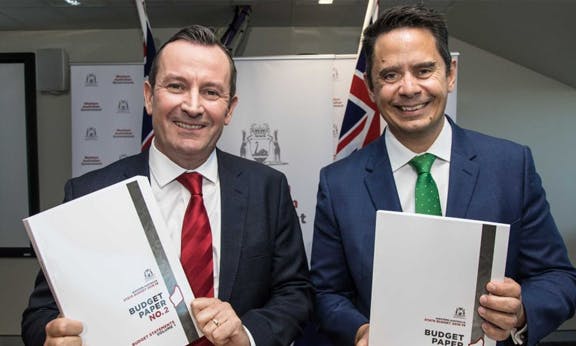WA Labor to hike utility fees

Working class Western Australians are being told to foot the bill for the state deficit once again.
The 2018 state budget, announced on 10 May by the McGowan Labor government, included big hikes to utility bills and to fees for state services, and cuts to education funding.
The price of electricity for households is expected to rise by 7 percent. Water and sewerage costs will go up 5.5 percent. In a climate of stagnant wages and significant lay-offs in the aftermath of the mining boom, these increases are a direct attack on the living standards of WA workers.
The 2018 budget doesn’t just increase the costs of living. Pat Byrne, president of the State School Teachers’ Union, noted that the 1.1 percent increase to the education budget is “the lowest increase over the last five years [and] continues a trend started by the last Barnett [Liberal] government of devaluing public education in Western Australia”.
“With inflation at 1.5 percent, and student enrolment growth in public schools at 3 percent, we’re effectively seeing a real cut to school budgets”, she said.
The budget got a different reception from the bosses. The Chamber of Commerce and Industry, the state’s peak employer association, enthusiastically supported it. Chief executive Chris Rodwell said that the chamber “welcomes the government’s strong focus on reining in spending”, and supports higher household water and electricity bills.
While marching to the tune of the big end of town, the Labor government has only disappointed unions, such as the public servants’ and teachers’ unions, that spent last year campaigning for Labor.
Mark McGowan was elected in 2017 promising to erase Western Australia’s debt of more than $32 billion. Within two months of the election, he had announced massive cuts to the state public service, 3,000 public sector workers being put on the chopping block.
The Labor Party attempted to sell these cuts by focusing on a planned 20 percent reduction of the 521-member Senior Executive Service, which comprises Western Australia’s highest paid bureaucrats and public sector executives.
But top public sector executives have received more than $15 million in termination payouts, with some top bureaucrats getting as much as $500,000, according to ABC reports.
Since initiation of the public sector “severance scheme”, more than 1,600 jobs have been lost. The rest will go by the end of the year, according to the union.
McGowan has also maintained the public sector pay freeze introduced by his Liberal predecessor Colin Barnett, which caps yearly public sector wage growth at $1,000 until next year.
While unions are now opposing the attacks in this budget, it will take more than press releases and social media posts to put an end to Labor’s campaign of austerity.